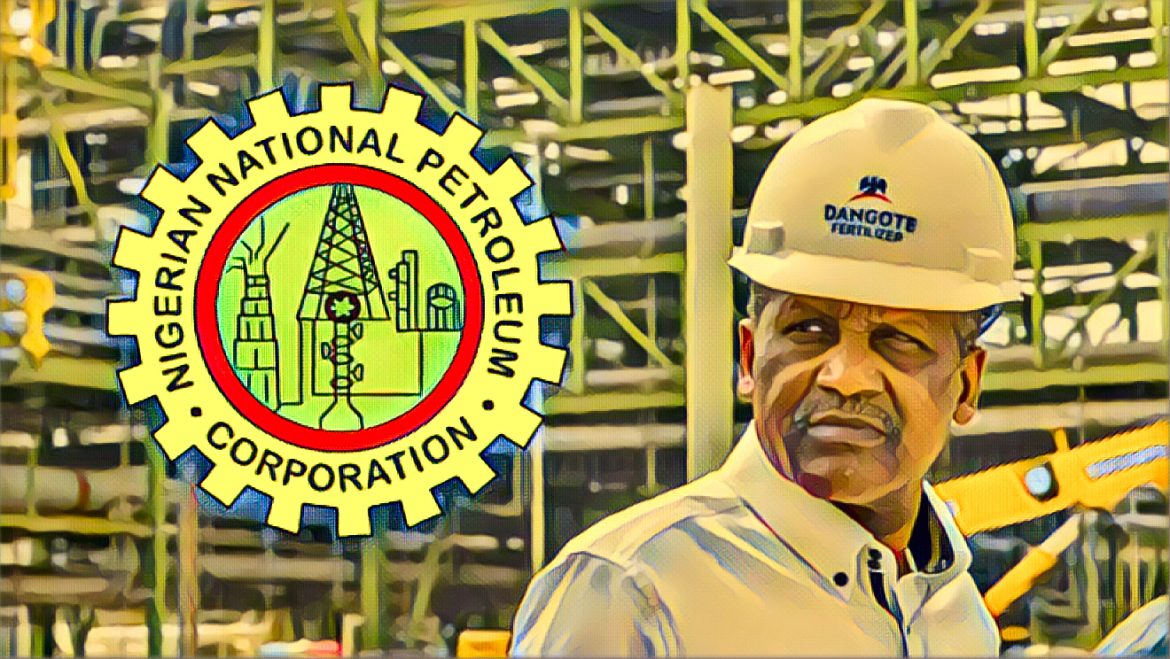Aliko Dangote, the Chief Executive Officer of Dangote Refinery, announced that the Nigerian National Petroleum Corporation (NNPC) now holds a reduced stake of just 7.2% in the refinery, a substantial decrease from the previously held 20%. This announcement was made during a press briefing in Lagos State on Sunday.
Dangote explained the reduction as a consequence of NNPC’s failure to meet financial commitments: “NNPC was meant to pay their balance in June but has yet to fulfill these obligations. As a result, their stake has now been adjusted to 7.2%.” This change underscores the financial and operational challenges within the sector, affecting even the largest refinery project in Africa.
Further complicating the refinery’s operations are accusations from Devakumar Edwin, Vice President of Oil and Gas at Dangote Industries Limited. Speaking at a training program organized by the Dangote Group, Edwin criticized International Oil Companies (IOCs) operating in Nigeria for allegedly attempting to undermine the Dangote Oil Refinery and Petrochemicals. He claimed that these companies were inflating crude oil prices, thus hindering Dangote Refinery’s ability to procure local crude at fair prices.
According to Edwin, this manipulation forces the refinery to import crude oil from distant markets like the United States, which significantly increases operational costs. “The IOCs are deliberately and willfully frustrating our efforts to buy local crude by hiking the cost above market price,” he stated, highlighting the strategic challenges faced by the refinery in securing affordable crude supply.
Moreover, Edwin pointed out issues with the Nigerian Midstream and Downstream Petroleum Regulatory Authority, which he accused of granting licenses indiscriminately to marketers to import low-quality refined products into Nigeria. This practice not only impacts the local refining industry but also raises concerns about environmental standards and product quality in the Nigerian market.
Despite these challenges, there are signs of commitment from the Federal Government and local crude oil producers to support the refinery. They have expressed a dedication to ensuring a sustainable supply of crude oil to local refineries under a market-determined pricing system. This commitment is crucial for the operation of facilities like the Dangote Refinery, which has a capacity of 650,000 barrels per day and is a significant player in Africa’s oil sector.
The Nigeria Upstream Petroleum Regulatory Commission has responded by directing oil refiners in the country to provide monthly price quotes for crude supply, aiming to foster transparency and fair trading practices within the industry. This measure is intended to ensure that while crude oil producers conduct business effectively, refineries like Dangote’s are not deprived of necessary raw materials.
Additionally, the refinery is adapting to current market dynamics by diversifying its crude sources. A recent report from Bloomberg highlighted that the Dangote Refinery is set to import a shipment of Brazilian crude. This strategy of sourcing from international markets is part of Dangote’s broader effort to maintain steady operations amidst local supply challenges.


